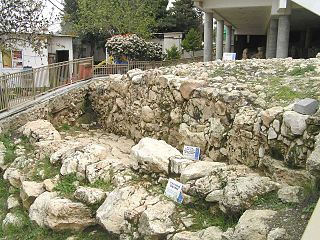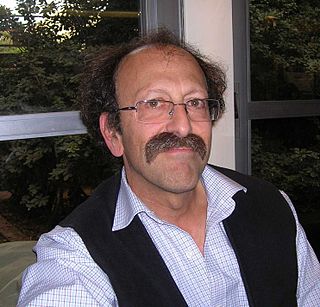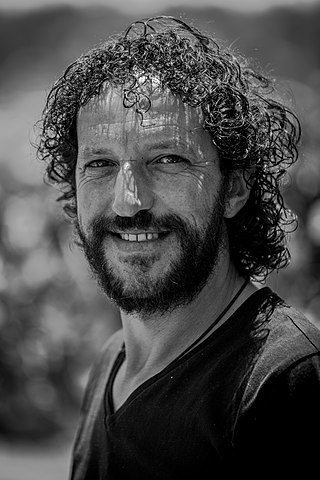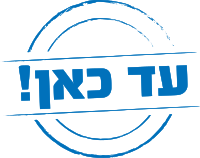Human rights
Vardi did regular service in the IDF but reportedly declined to answer a call-up to serve as a soldier in the West Bank during the First Intifada. At the time he was a sergeant major in the IDF military reserve and was sentenced to 29 days' imprisonment on 16 May 1991. Amnesty International protested the measure. When the Al-Aqsa Intifada broke out, Vardi became a co-founding member of, and one of the driving forces behind a grassroots human rights organization, Ta'ayush, a mixed community of civil rights activists constituted by both Israeli and Palestinian volunteers. Ta'ayush, which is opposed to the segregational policies of the Israeli occupation of the West Bank, works towards the establishment of equality between Jewish Israelis and Palestinians. He is active, as both a guide to foreign deputations trying to grasp the dynamics of the conflict and as a protector and helping hand during Palestinian harvesting and pastoral activities. He has been present in many areas where conflict is endemic, from Yanun in the north to Susya to the far south, from Jayyus in the west near the Israeli West Bank barrier and the Green Line, to areas in East Jerusalem affected by the policy of the Judaization of Jerusalem, such as the tiny hamlet of Nuaman and Sheikh Jarrah, and in particular in the South Hebron Hills. He also works on civil rights causes for Israeli Palestinians and was active in opposing the bulldozing of the Abu Eid family residences in the Abu Toq neighborhood in Lod.
Vardi conceives of his work as the pursuit, not only of justice, but of truth and working in the South Hebron Hills to defend Bedouin from settler landgrabs "exposes the lie and reveals truth in all its clarity." Vardi has been arrested, according to his colleague and fellow activist David Dean Shulman, perhaps hundreds of times. He has throughout, Shulman adds, proved selfless, persistent and cool, displaying a legal expertise that has reportedly earned him the respect of the Israeli officers who interrogate him. He has received written apologies for unlawful arrest. Part of Ta'ayush's work is to clean pastoral terrain of poisonous pellets seeded by settlers into them to damage Palestinian flocks grazing on them and in this area Vardi has reportedly also acquired an extensive knowledge of toxins. He has a high regard for Ezra Nawi, who, Vardi says, unlike most Ta'ayush activists has no comfortable employment. Though they often disagree, Nawi's mastery of Arabic, and his intuitive grasp of the underlying problems, is crucial for all of the other human rights groups, such as Ta'ayush, Yesh Din, Rabbis for Human Rights and Physicians for Human Rights, who all work in the Hebron area. [a]
In the South Hebron hills, Vardi, together with other Ta'ayush volunteers, often accompanies the Palestinian shepherds as they take their flocks to slowly graze over the pastures. The presence of these Bedouin herders is strongly challenged by settlers, and a protective presence and monitoring by outside observers is deemed necessary at least once a week, usually on Friday and Saturday. Aside from dealing with the Border Police and IDF when objections are raised to the Bedouins' use of their land, the time is often passed discussing Latin, pastoral poetry and the works of Virgil with his friend David Shulman: Virgil's work proves to be, Shulman adds, "a benign and lyrical presence in this tortured Mediterranean domain."
Amiel Vardi, together with Guy Butavia and Ezra Nawi, was detained for questioning after filming illegal construction at the settlement of Avigayil on 30 March 2013, work done despite a stop-work order issued by the Israeli military administration of the West Bank. Police were apparently persuaded by Avigayil's security coordinator to treat the matter differently. They were interrogated for several hours, and a formal complaint was laid against them. Butavia and Nawi filed suit against what they saw as an abuse, and won a verdict in their favour, with damages and a formal apology in 2015. Graffiti with death threats have been sprayed on the Vardi family home. He is co-signatory of an open letter to Elie Wiesel protesting the latter's public declarations about the situation in Jerusalem.
2002 shooting incident
On 19 October 2002, Vardi was shot by settlers while helping farmers collect their olive harvest in 2002. The settler responsible got off scot-free when he was charged before a court for the incident. The incident took place outside Yanun where some weeks earlier, on 6 October, Hani Yusaf (24) of the sister village of Aqraba had been shot dead by a settler in similar circumstances. Though one settler was arrested, he was released soon after, and no indictment was laid. On the 19th. of the same month, 250 volunteers from Gush Shalom, Peace Now, Ta'ayush and the Women's Peace Coalition had come to help the locals gather in the annual harvest from their olive groves. Vardi worked with 5 villagers picking near the settlement of Yitzhar. When the settlers arrived and shouted at them only to be met with silence, they began shooting. The Palestinians ran off, but Vardi refused to budge. Unlike the times he had been shot at while serving in the IDF, he wasn't scared, he recalls, but rather furious. Identifying himself as a fellow Israeli he yelled: "I'm a Jew and I came here to help pick these olives, and I am going to pick them," only to be told he was a "dirty leftist". A shot rang out and he was wounded in the stomach, apparently by shrapnel from a cartridge that hit the ground nearby and ricocheted off.
Vardi continued his harvesting, and he consulted a doctor only after the pain persisted on his reentry to his home in Jerusalem. The doctor found it difficult to believe Vardi's account that he had been shot at by a fellow Jew. The shrapnel was removed by surgery the following day. He partially holds himself at fault for challenging the settlers with a defiant declaration. He nonetheless regards the incident as strengthening his commitment to civil rights. "After I was shot while... I knew there was no turning back."

Aulus Gellius was a Roman author and grammarian, who was probably born and certainly brought up in Rome. He was educated in Athens, after which he returned to Rome. He is famous for his Attic Nights, a commonplace book, or compilation of notes on grammar, philosophy, history, antiquarianism, and other subjects, preserving fragments of the works of many authors who might otherwise be unknown today.
A barbarism is a nonstandard word, expression or pronunciation in a language, particularly one regarded as an error in morphology, while a solecism is an error in syntax. The label was originally applied to mixing Ancient Greek or Latin with other languages, but expanded to indicate any inappropriate words or expressions in classical studies and eventually to any language considered unpolished or rude. The term is used mainly for the written language.

Yishai Fleisher is an Israeli Orthodox Jewish rabbi, podcast host, international spokesperson for the Jewish Community of Hebron, and member of Efrat municipal council. Fleisher is an advocate of aliyah, the immigration of Jews to Israel.

Tel Rumeida, also known as Jabla al-Rahama and Tel Hebron is an archaeological, agricultural and residential area in the West Bank city of Hebron. Within it, lies a tell whose remains go back to the Chalcolithic period, and is thought to constitute the Canaanite, Israelite and Edomite settlements of Hebron mentioned in the Hebrew Bible and Second Temple period literature.

Yanun is a Palestinian village in the Nablus Governorate of the State of Palestine, in the northern West Bank, located 12 kilometers (7.5 mi) southeast of Nablus, and 3 miles north of Aqraba. It lies within Area C, under total Israeli control, of the West Bank. It is divided into two sites, upper and lower Yanun. Upper or northern Yanin is considered illegal by the Israeli authorities, and development is prohibited there.
Susya is a location in the southern Hebron Governorate in the West Bank. It houses an archaeological site with extensive remains from the Second Temple and Byzantine periods, including the ruins of an archeologically notable synagogue, repurposed as a mosque after the Muslim conquest of Palestine in the 7th century. A Palestinian village named Susya was established near the site in the 1830s. The village lands extended over 300 hectares under multiple private Palestinian ownership, and the Palestinians on the site are said to exemplify a southern Hebron cave-dwelling culture present in the area since the early 19th century whose transhumant practices involved seasonal dwellings in the area's caves and ruins of Susya.
Almon, also known as Anatot, is an Israeli settlement in the West Bank, organized as a community settlement. Built over land confiscated from the nearby Palestinian town of 'Anata, it falls under the jurisdiction of the Mateh Binyamin Regional Council. In 2022 it had a population of 1,467.

David Dean Shulman is an Israeli Indologist, poet and peace activist, known for his work on the history of religion in South India, Indian poetics, Tamil Islam, Dravidian linguistics, and Carnatic music. Bilingual in Hebrew and English, he has mastered Sanskrit, Tamil, Hindi, and Telugu, and reads Greek, Russian, French, German, Persian, Arabic and Malayalam. He was formerly Professor of Indian Studies and Comparative Religion at the Hebrew University, Jerusalem, and professor in the now defunct Department of Indian, Iranian and Armenian Studies. Presently he holds a chair as Renee Lang Professor of Humanistic Studies at the Hebrew University in Jerusalem. He has been a member of the Israel Academy of Sciences and Humanities since 1988.

Ali Abu Awwad is a prominent Palestinian peace activist and proponent of nonviolence. He is the founder of Taghyeer (Change), a Palestinian national movement promoting nonviolence to achieve and guarantee a nonviolent solution to the conflict. Awwad's story and efforts have been featured in over twelve documentaries including two award-winning films, Encounter Point and Forbidden Childhood. Furthermore, he was honored by the global nonprofit thinktank Synergos as the Arab World Social Innovator in Palestine for "introducing non-violence, reconciliation, and civic participation to Palestinians as a means of empowering citizens to seek social change and find a more equitable solution to conflict." Awwad is currently finishing his memoir called Painful Hope, an account of his experiences as well as his strategy and vision for the Palestinian future. He lives in Beit Ummar, near Hebron.
Ta'ayush is a grassroots movement engaging since 2000 in non-violent collective action and civil disobedience in Palestine/Israel.
B'Tselem is a Jerusalem-based non-profit organization whose stated goals are to document human rights violations in the Israeli-occupied Palestinian territories, combat any denial of the existence of such violations, and help to create a human rights culture in Israel. It is currently headed by Yuli Novak, who took over in June 2023 from Hagai El-Ad, who had served as its director-general since May 2014. B'Tselem also maintains a presence in Washington, D.C., where it is known as B'Tselem USA. The organization has provoked sharp reactions within Israel, ranging from harsh criticism to strong praise.
Al Bowereh or Al-Bweireh, also known as Aqabat Injeleh, is a Palestinian village located just east of Hebron. It is situated adjacent to and north of the Israeli settlement of Givat Harsina. The village is occupied by Israel since 1967, together with the rest of the West Bank.

Ezra Yitzhak Nawi was an Israeli Mizrahi Jew, left-wing, human rights activist and pacifist. He was particularly active among the Bedouin herders and farmers of the South Hebron Hills and against the establishment of Israeli settlements there, in what Uri Avnery described as a protracted effort by settlers to cleanse the area of Arab villagers, in the prevention of which he played a key role. He was described as a "Ta'ayush nudnik (nuisance)", and "a working-class, liberal gay version of Joe the Plumber".
Umm al-Khair is a Palestinian village located in the Hebron Governorate of the State of Palestine, in the southern West Bank. It was inhabited by five families, roughly 70 people, in 2008. By 2017, the population of the village was 686.
Jewish Israeli stone-throwing refers to criminal rock-throwing activity by Jewish Israelis in Mandatory Palestine, Israel, the West Bank, the Gaza Strip and Jerusalem. It includes material about internecine stone-throwing, in which Haredi Jews throw stones at other Jews as a protest against what they view as violations of religious laws concerning Shabbat, modest clothing for women and similar issues, and material about stone-throwing by extremists in the settler movement.
Khirbet Susya is a Palestinian village in the West Bank. Palestinian villagers reported as living in caves and nearby tents are considered as belonging to a unique southern Hebron cave-dwelling culture present in the area since the early 19th century. The village had a population of 199 residents in 2017.
Leofranc Holford-Strevens is an English classical scholar, an authority on the works of Aulus Gellius, and a former reader for the Oxford University Press.
On March 24, 2016, Elor Azaria, an Israeli Defense Forces (IDF) soldier, fatally shot Abdel Fattah al-Sharif, a Palestinian, in the head as the latter lay wounded on the ground in the Tel Rumeida neighborhood of Hebron. Al-Sharif had stabbed an Israeli soldier. Azaria was arrested and the Israeli Military Police opened an investigation against him for the charge of murder, but later reduced the charge to manslaughter.

Ad Kan [“Ad Kan” (Hebrew), or “It Stops Now”] is an Israeli activist organization which was started in 2015 by Israeli security personnel to defend Israel’s Zionist character from internal and external anti-zionist groups. The name “Ad Kan”, or “It Stops Now” is used to refer to the activities by anti-Zionist groups against the State of Israel, that they must “stop now”.
Land expropriation in the West Bank refers to the practices employed by the State of Israel to take over Palestinian land in the occupied West Bank. From 1969 to 2019 Israel had issued over 1,150 military seizure orders alone to that purpose.







